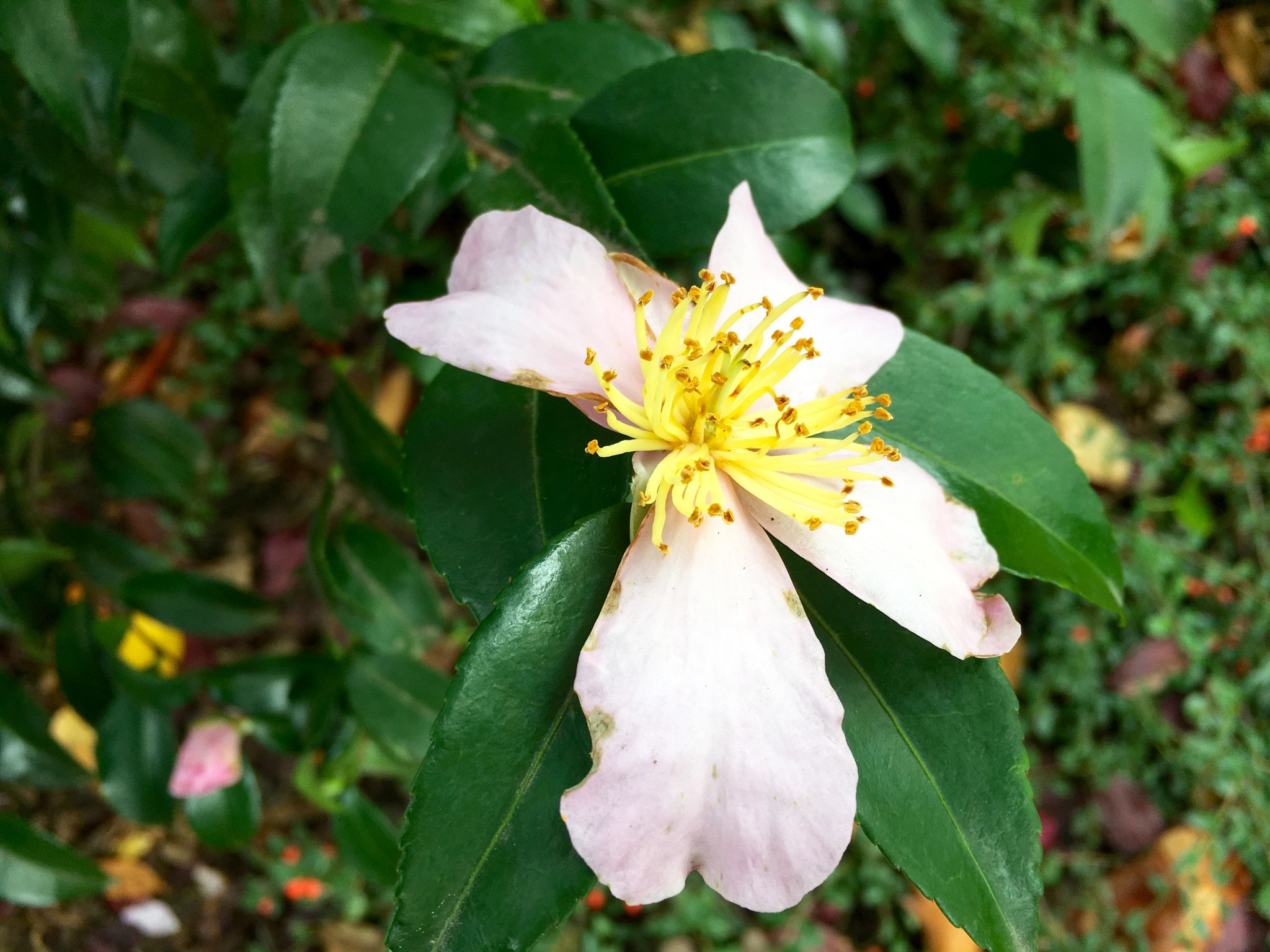Seriously. There’s not Camellia one in my garden. I thought I didn’t like them. But I suspect it’s a prejudice born of those ubiquitous mis-pruned Camellias of my youth. When I was a kid, every yard had at least one, and usually more. Apparently, though, they ain’t supposed to be primarily giant light-blocking lollipops–good for concealing pint-sized, water-pistols packing assailants.
I mentioned last week that I’ve been studying the Gosslers’ Guide to the Best Hardy Shrubs. Focusing on one Genus at a time is much better than mad-scanning and racing to the next plant. Breathe, Patricia! Here’s what the Gosslers have to say about the lovely Camellia:
These ornamental shrubs have been grown in their native lands for hundreds of years by gardeners, and they have been grown in Western gardens for at least 150 years. The glossy, dark green leaves of Camellia japonica are a standard feature in the gardens of the Pacific Coast, and in the South from Virginia to Texas. The flowers can be single, semidouble, or formal double, ranging in color from white to pink to deep red, with many hundreds of variations. Our problem in the Northwest is that the flowers can be blemished or ruined when they bloom in early spring. We have tried many forms of C. japonica over the years, but our climate is too cool, and the flowers are ruined most years by rain and cold weather. (OOOOOH, another reason I thought I didn’t like them. Wrong plant in the wrong place.) However, we really like some of the hardier species’ first-generation hybrids and Camellia x williamsii hybrids.
Camellia includes an enormous range of options. We strongly encourage you to try the species and newer hybrids from the eastern United States to what will grow in your garden.
Origin: China, Japan. Hardiness: Zones 6-9. Exposure: Afternoon shade.
And because I’m just learning, I hope you will forgive the lack of identifications on some of these Camellias. I can note that I’m drawn to an open undulating style–with single-ish flowers. And light to white colors. Unless I see a dynamite red or pink, and then none of that.

It looks good even when the bloom is a bit faded.

And I’m a sucker for anything reminiscent of Romney coulteri–though I’ve been warned about their thuggish ways.

I’m not one for a riot of color, but a blossom here or there in bleak winter is pretty fabulous.

The Lan Su Chinese Garden in downtown Portland knows from Camellias. There’s the undulating form I’m talking about. Just let some kid try to hide behind that.

I wanted to go to the Chinese Garden yesterday, but alas, ice storm. This is getting old. While most of the city was thawed, we still had icicles. I’m hoping it gets better soon, and that Back to Eden Bakery has the gluten and dairy free chocolate mint cake. It’s the weekend, so dessert is permissible.

Oh, wait a minute, back to Camellias. I’m about as focused as Charlie Kaufman. (Sorry for telling the same jokes over and over. I have only a few favorites, so they have to be re-used.)
I did manage to record the name of the Camellia below, Camellia transnokoensis.
- Pretty blooms.
- Free-flowing shape.
- Nice foliage.
I like how the smattering of the blooms in Skidmore Woods below dresses up the green foliage.

I mean, look. Such beauty exists. (Check out Great Plant Picks for their suggestions too. Theirs are actually identified.)

I haven’t narrowed down my choice, and of course, don’t have your suggestions yet. But I’m on the case, and I can’t wait to hear from you Camellia aficionados out there. Feel free to send your favorites this direction, please.
Cheers



